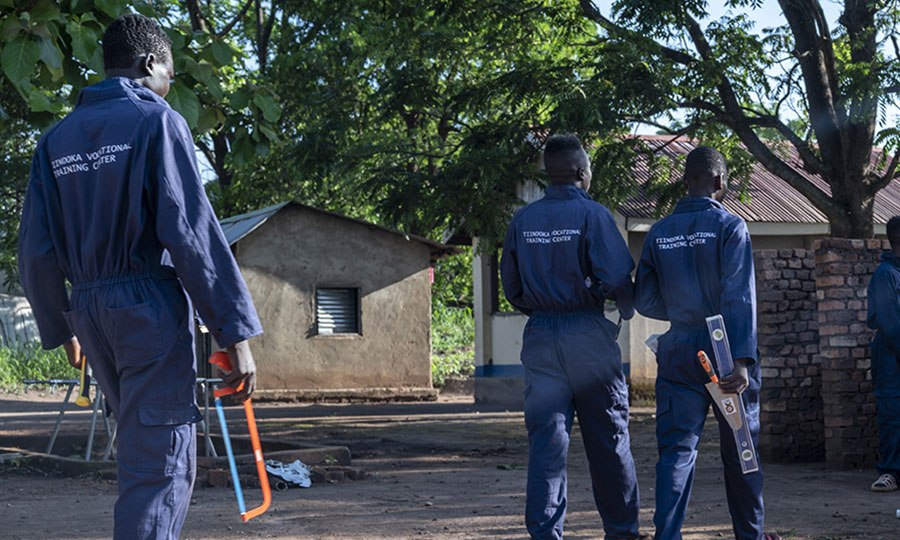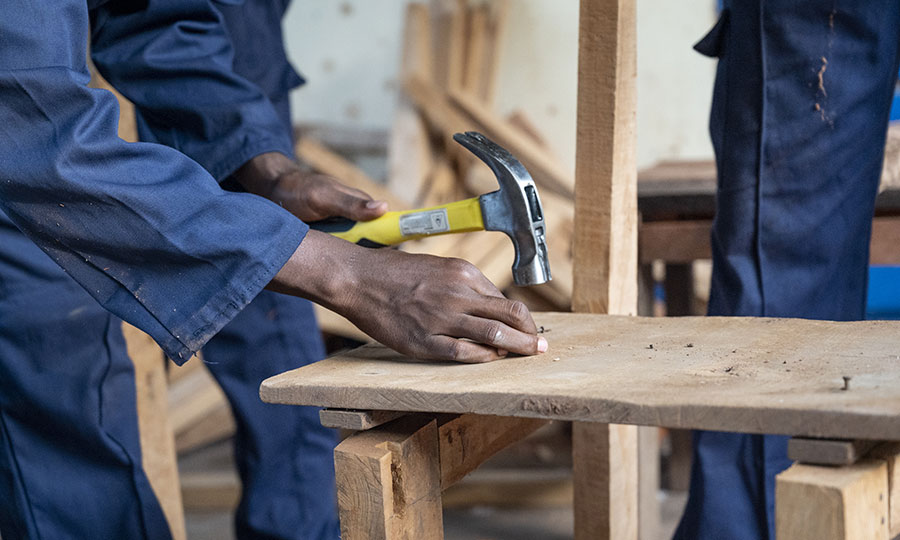Rebuilding Futures

Former Child Soldiers are embracing new skills and opportunities to become successful entrepreneurs
When communities are caught in the crossfires of conflict, everyday life is disrupted in unimaginable ways. In South Sudan, civil war and violence have been a consistent part of life for the past two decades. For children and adolescents, this means conflict has defined much of their childhoods. Amid severely limited access to healthcare, education, and economic resources, the people of South Sudan still face unprecedented challenges—especially its youth.
Today, a generation of children have returned home after spending sometimes years in armed groups. The recruitment of child soldiers is often violent and forced. In most cases, children do not have the option to choose for themselves.
Though eager to rebuild and reinvest in their futures once finally home, opportunities are limited and former child soldiers commonly face rejection in their communities, even within their families. All this, on top of the severe post-traumatic stress disorder many face, makes reintegration into daily life an extremely challenging process.
Rebuilding futures for South Sudan’s youth
In 2021, CMMB, in collaboration with UNICEF, undertook a significant commitment to provide vocational training to children who were formerly associated with armed forces. Though the task of rebuilding their lives remains daunting, the training provided a path forward—and support along the way.
When training was in session at the Tindoka Vocational Training Institute, the atmosphere was bustling. Children and adolescents were busy learning skills in everything from carpentry, tailoring, electric work, metalwork, and more.

The program’s support extended to include psychosocial services—an essential for those struggling with post-traumatic stress disorder. Since the center opened its doors, 100 children have successfully graduated from the vocational program, each specializing in different fields.
Measuring impact
As part of CMMB’s evaluation process, we conducted interviews with a representative group of graduates, consisting of an equal number of males and females. Our findings highlighted inspiring stories of resilience and determination. Some graduates sought opportunities at small local restaurants and others continued their tailoring skills to support their livelihoods. Those enrolled in building and electrical installation training were able to bring their services into the community.
Two graduates even established carpentry workshops, reshaping the trajectory of their future—and the future of others. In addition to their trade, they have taken on a mentorship role, sharing knowledge and skills with other former child soldiers who did not have the opportunity to participate in vocational training. Embraced with no external incentive, these actions are a testament to the graduate’s commitment to the community.
Additionally, 100% of graduates interviewed by CMMB experienced complete psychological recovery from post-traumatic stress disorder, based on self-reported metrics.
These children, their resilience, and their determination to achieve bright futures for themselves is just one powerful example of how education is transformative. At CMMB, we are committed to the well-being of South Sudan’s children. It’s an honor to share the stories of these young graduates, their journey to overcome adversity, and their motivation to now build the future they once thought impossible.